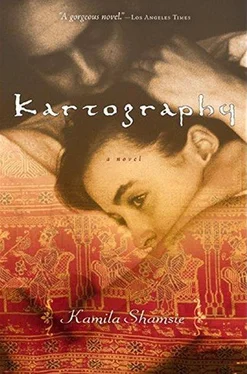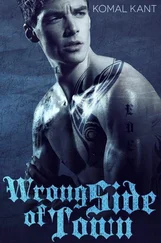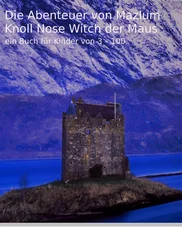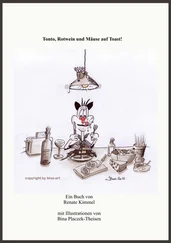Kartography
Kamila Shamsie

For all my Karachi friends,
All over the world—
In particular,
Asad Haider and Tushna Kandawalla.
I’d like to thank all the usual suspects. In addition, I must mention:
Agha Shahid Ali, for insisting I ‘do something’ with the image of the spinning globe.
Zain Mustafa, for drives through Karachi, and lunar streets.
Rehana Hakim, for giving me access to the Newsline archives.
Zerxes Spencer, for the stream of post-midnight e-mails which kept me company while I was at work on the first draft of this novel.
Aisha Rahman and Deepak Sathe, for the sofa-bed.
Marian McCarthy, for understanding where this book could go, and insisting I take it there.
It would be impossible to mention all the books, articles and websites I consulted while working on this novel. But I would like to mention the following, which were of particular help.
Ali, Tariq. Can Pakistan Survive? Verso, 1983.
Baillie, Alexander F. Kurrachee Past, Present and Future. Oxford, 1975.
Cosgrove, Denis (ed.), Mappings. Reaktion Books, 1999.
Lari, Yasmeen and Mihail S. The Dual City: Karachi During the Raj. Oxford, 1996.
. . .
The globe spins. Mountain ranges skim my fingers; there is static above the Arabian Sea. Pakistan is split in two, but undivided. This world is out of date.
Rain outside. If it reaches Karachi, the waves will swell further. The airport, though, is inland. From there to here is no distance at all if you look at the map of the world. But distance is not about miles and kilometres, it is about fear. Who said that? Someone who wasn’t married to a pilot, I’d guess. I unscrew a jar of ink. Scent of smudged words and metal fills the air.
Do all tentacled creatures produce ink, Raheen? Does the cuttlefish? Can you write on the waves with cuttleink?
I close my eyes, and wrap my fingers around a diamond-shaped bone. I still hear the world spinning. I spin with it, spin into a garden. At dusk. And yes, those are shoulder pads stitched into my shirt.
1986.
. . .
Of course the garden is located where all our beginnings, Karim’s and mine, are located: Karachi. That spider-plant city where, if you know what to look for and some higher power is feeling indulgent, you might find a fossilized footprint of Alexander. The Great. He led his army through Karachi, long, long before the spider-plant effect took hold, when Karachi was a harbour named Krokola. Perhaps Alexander’s was the first army that stirred up the sand along the eastern coast of the Arabian Sea.
That’s an interesting thought.
Though, really, it’s never been proved that Karachi is Krokola, and even if it is Alexander probably never stepped foot on its shores; so any ancient Macedonian footprints with heelstamps of authority in Karachi’s rocks must belong to Alexander’s admiral, Nearchus, who wasn’t even Macedonian. He was a Cretan and that sounds rude.
I don’t know if Karim and I were actually looking for ancient footsteps in the rockery of Karim’s garden that October evening, the day all boxes were unpacked and the move from Karim’s old house finally completed, but I do know that we were more than happy with our discovery of a fossilized cuttlefish.
‘You sure it’s a cuttlefish?’ I said, turning the diamond-shaped fossil over in my hands. We were sitting cross-legged, side by side, on the grass that bordered the triangle of soil on which the rockery had been set out. Mud on his knees and chlorophyll on mine, though as we sat close, swaying back with laughter and forward with curiosity, the colours were mingling, dun shot through with emerald.
“Course it is. Well, cuttlebone. No sign of fish flesh on that thing.’
‘So flesh is what makes a fish a fish?’
‘Interesting question. Is a sole without flesh still a sole? Either way, a cuttlefish isn’t a fish at all.’ Karim waved his arms about like someone trying to breakdance. ‘It’s got tentacles.’
He fell back on his elbows, nearly flattening an ant, which, impervious, did not waver from its path but crawled over his arm and proceeded along through the short-cropped grass. ‘Imagine it.’ He looked around. ‘This used to be an ocean. If you squint, can’t you almost see Mai Kolachi rowing a boat through the hibiscus in search of her husband, and look! over there, through the bougainvillaea you can see a wave made up of the tears Alexander wept for Bucephalus.’
‘“Bucephalus” is an anagram for “a puce blush”. When I squint, I see only a blur.’
Karim rolled his eyes. ‘You know, if I wasn’t me, you wouldn’t be you.’
Odd. No matter where I begin, that line finds its way into my narrative so very early on, and forces linearity to give way to a ramble of hindsight. This is the worst of our ways of remembering — this tendency to prod the crust of anecdote in the hope of releasing a gush of piping-hot symbolism.
Stop, Karim would say. Go and eat something. And look up ‘symbolism’ in the dictionary while you’re at it. Symbolism is an anagram for ‘Miss my lob’. The summer we played tennis together there was such symbolism in your game.
Karim, shut up. While you weren’t looking I’ve melded the memories into a story beginningmiddlend, and don’t you dare interrupt with your version of what-really-came-first and that-was-cause-not-effect.
Goodness, girlio, wouldn’t dream of it. Chronology is all about effect. Which is why you should have started at the point…
Karim!
Proceed.
All right. Dusk…shoulder pads…cuttlefish… My parents pulling up in the driveway, and Karim’s father — Uncle Ali — coming out to join them for tea, his tie immaculately knotted and the creases of his trousers so sharp they would have mowed the grass if he had rolled across the garden. That’s a ridiculous thing to say, though. Imagine Uncle Ali deigning to roll.
‘Oh, you really look like someone who’s been unpacking boxes all day,’ my mother said with a laugh, sitting down on a cane chair, her palm outstretched towards Uncle Ali as though proffering him a tray of teacups. ‘Hanh, I know. The house is a mess, but your dressing room is tiptop and shipshape.’
Uncle Ali didn’t smile. ‘Such an optimistic move, buying a house.’
I caught my parents exchanging worried glances. ‘What a silly remark, Ali,’ my mother said.
‘What’s silly about it? The factory area is still under curfew. No sign of it lifting.’
‘Oh, optimistic that way,’ my father said, and then shut up because my mother kicked him.
I looked across at Karim to see if he knew what was going on, but he was gripping the cuttlebone tight, trying to imprint his palm with its scarred surface.
‘Things are just so awful,’ Uncle Ali went on. ‘God only knows when the kids’ school will open again.’
Karim and I tried to look sombre, but my father caught us touching toe to toe in delight.
‘You’re more than happy that the riots are continuing, right?’ Aba said.
‘Well, it’s not…’ I said.
‘That we want more people to die or anything,’ Karim went on. ‘But…’
‘But it wouldn’t hurt if things remained…’
‘Tense.’
‘Just long enough for exams to be cancelled.’
‘Quickly make as many idiotic statements like that as are necessary for a lifetime,’ my father said. ‘You’re almost old enough to know better. What is it? October? By January we’re going to start expecting moral responsibility of you both.’ Aba shifted sideways as he spoke and looped his legs over the arm of the chair, his every muscle conveying the indolence of a well-satisfied man. He could probably drape himself over a barbed-wire fence and still look entirely at ease.
Читать дальше













